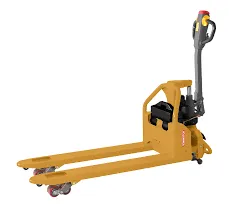


Understanding Hanging Crane Scales A Comprehensive Overview
Hanging crane scales are essential tools in industries where lifting, weighing, and transporting heavy equipment and materials are required. These scales are particularly popular in manufacturing, shipping, construction, and logistics sectors. Their design allows for versatile applications, making the task of weighing large loads efficient and precise.
At the core of a hanging crane scale's functionality is its ability to accurately measure the weight of suspended objects. These scales feature a robust hook at the bottom and a suspension system that connects to a crane or hoisting device. The load is hung from the scale, which employs advanced weighing technology, such as load cells, to determine the weight of the item suspended.
One of the standout advantages of hanging crane scales is their high weight capacity. Depending on the model, these scales can measure loads ranging from a few hundred kilograms to several tons, catering to various industrial needs. This high capacity is made possible by the durable materials and construction of the scales, which are designed to withstand heavy use and extreme conditions typically found in industrial environments.

Portability is another significant feature of hanging crane scales. They are usually compact and lightweight, allowing for easy transportation between different locations within a work site. Many models are also equipped with battery power, enabling use in areas without direct access to electricity. This flexibility allows operators to perform weighing tasks wherever necessary, without being confined to a fixed location.
Modern hanging crane scales often come with advanced features that enhance usability and functionality. Digital displays are common, providing clear and instant readings of the weight being measured. Some scales are equipped with wireless technology, enabling data transfer to computers or mobile devices for better record-keeping and analysis. Additionally, features like overload protection and numerical memory functions further enhance their operational efficacy.
While using a hanging crane scale, it is essential to adhere to proper operational guidelines to ensure safety and accuracy. Users must always ensure that the scale is correctly calibrated and that the load does not exceed the scale's capacity. Regular maintenance checks are also crucial, as they help detect wear and tear or any malfunctioning components that could compromise the scale's performance.
In conclusion, hanging crane scales are invaluable assets in various industrial sectors, providing a reliable method for weighing heavy loads with efficiency and precision. Their robust construction, portability, and advanced features make them essential tools for managing logistics, ensuring safety, and optimizing operational workflows. As industries continue to evolve, the demand for innovative weighing solutions like hanging crane scales will likely increase, underscoring their importance in modern workplace environments. By investing in quality hanging crane scales, businesses can enhance their productivity while maintaining a strong focus on safety and accuracy in their operations.



